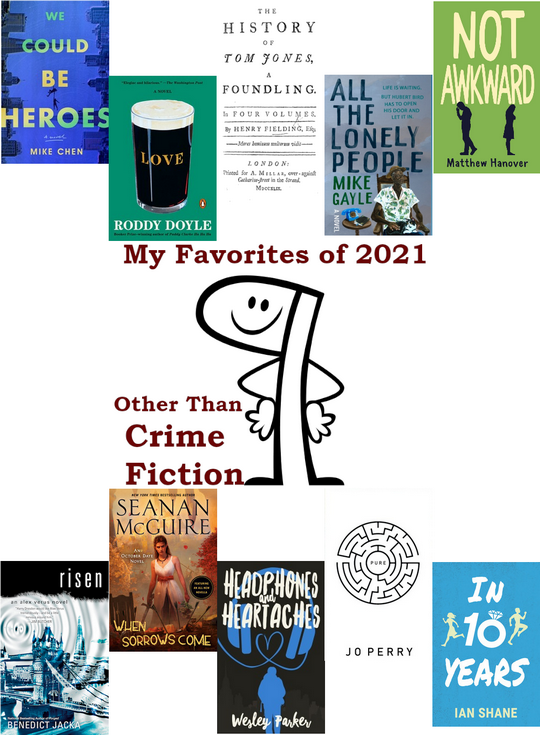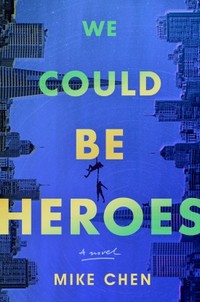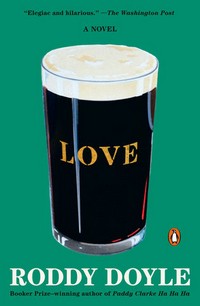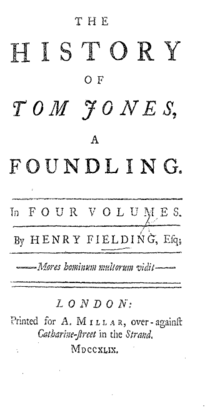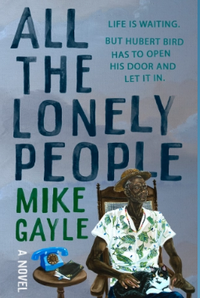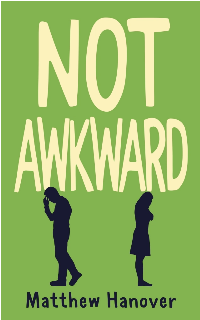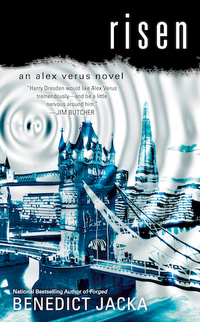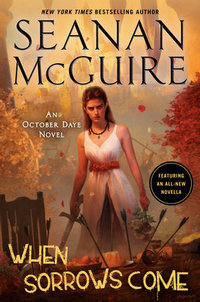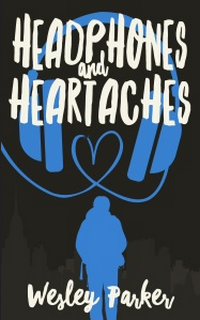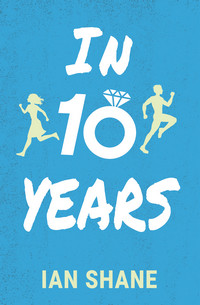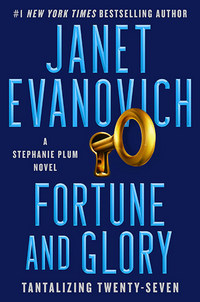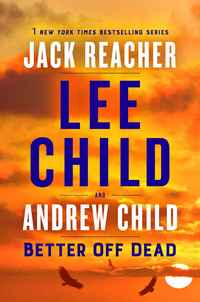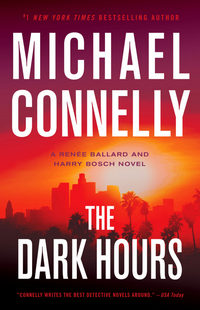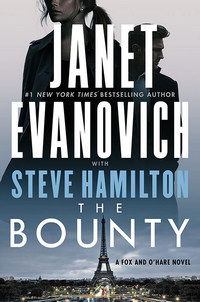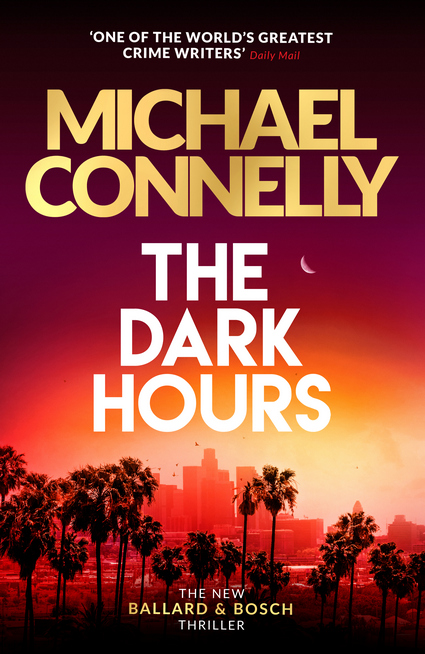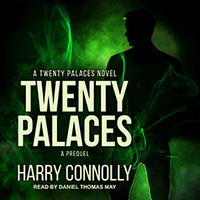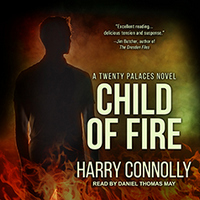Finally, we’re at the end of my 2021 wrap-up, it feels like I’ve been at this for a month. I really need to get faster at this.
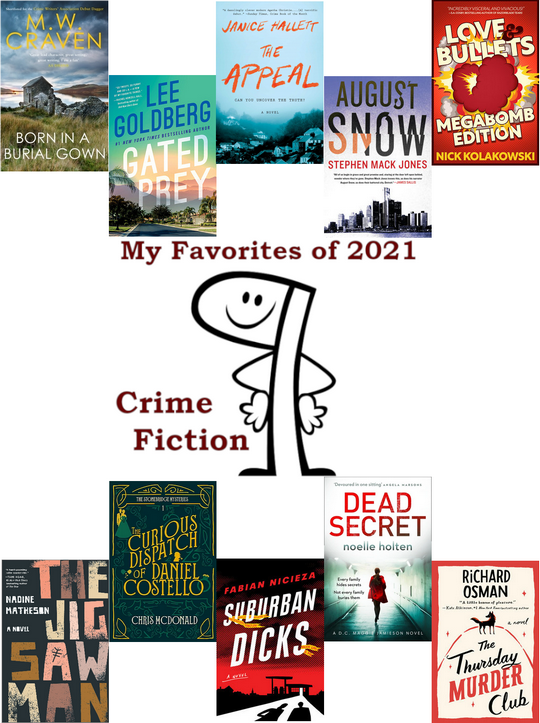
38% of what I read last year falls into the category of “Mystery/Detective Fiction/Crime Fiction/Thriller,” so I have to consider it apart from everything else when I put together my Best-Of Lists, or just about everything else would get ignored. Even if I went with a Top 15-20 instead of a Favorite 10, maybe 2-3 books from the previous lists would’ve made it along with all of these (and a couple that just missed this list).
Once again, I’ll note that I limit my lists to things I read for the first time. I’d be willing to guarantee anyone reading this page will enjoy at least 6 of these (which six will vary from reader to reader, however). I’m tempted to say that all the listed books are guaranteed for everyone, but people’s tastes are too varied, so I’ll hedge my bet. Try these, and you’ll be glad you did.
(in alphabetical order by author)
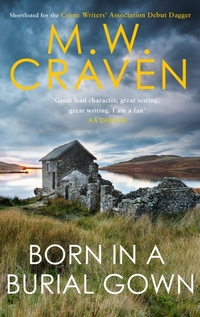 Born in a Burial Gown
Born in a Burial Gown
by M. W. Craven
My original post
Should I just start calling this list An M. W. Craven Novel and 9 Others I Loved Last Year? This just narrowly beat out the latest Poe/Tilly for this spot. This novel introduces a very damaged detective trying to prove that he deserves to be where he is (and his team does, too). DI Fluke is a great character—well, they all are. The prose just sings, the novel’s well-paced and cleverly put together. The killer, the motive, the victim, the reveals (both in the way they were handled and what was revealed), the fairly satisfying (by design) ending, the sweet and then very satisfying denouement—and anything else I didn’t mention—it’s all just as good as you could hope for.

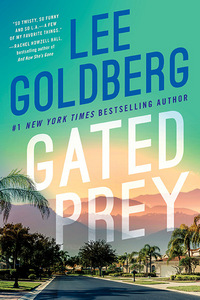 Gated Prey
Gated Prey
by Lee Goldberg
My original post
It was only after I narrowed down this list that I realized that Eve Ronin showed up on last year’s list, too. I clearly have a thing for this series. Eve is still learning how to be a detective while making headlines by being involved in high-profile cases. This book mixes observations about celebrity culture, a couple of great mysteries, continued problems in the Los Angeles County Sheriff’s Department, and Eve (once again) failing to balance work and life (or at least work and health). Rookie detectives aren’t the typical focus of a series, but really should be (at least if this series is any indication)

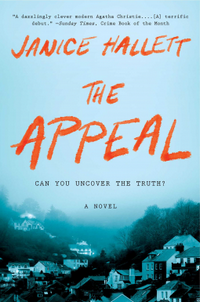 The Appeal
The Appeal
My original post
The reader is on the same level with the characters who are trying to solve things in this epistolary mystery—we get to read the evidence at the same time as the trainee lawyers that we focus on do. That alone makes this an inventive read. Then Hallett adds in a fantastic cast of characters involved in a small town’s local community theater and a crowd-funding effort for a small child’s cancer treatment. You start out knowing something criminal happened, and gradually start to figure out what the crime was and how it involves those characters. It’s a truly inventive way to tell this kind of story and a great story. It’s the kind of book that’s easy to overhype as you talk about it, so I’m shutting up now.

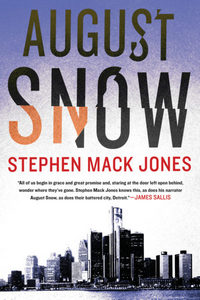 August Snow
August Snow
My original post
Readers here know that one of my greatest weaknesses is a good P.I. novel, and “discovering” August Snow was just a treat for me. There’s something about this book—one of those ineffable things that just sang to me—that reminded me of the first time I read a Dennis Lehane Kenzie and Gennaro book, or Joe Ide’s I.Q., or Crais’ Elvis Cole. There’s something just so right—so absolutely classic P.I. and incredibly fresh about the voice—that I felt at home.
From an atypical beginning with the prospective client that ends up without anyone being hired, through the morass of financial crimes and murder, to the explosive ending—with the increasing sense of dread and apprehension of an ensuring emotional gut-punch—August Snow is a fantastic series debut, that would be an equally fantastic tenth novel in a series. It’s fantastic, period.

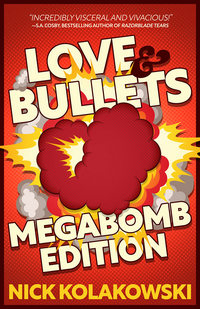 Love & Bullets: Megabomb Edition
Love & Bullets: Megabomb Edition
My original post
This is technically a violation of my “only new to me” books, Kolakowski took his three Love and Bullets novellas and added a little new material to turn them into a novel. I found the experience different enough reading them as a novel, that I’m going with it. It’s just a blast to read. I had fun with every novel on this list, but for sheer entertainment value, I think this one tops the rest.
Love & Bullets is a fast-moving thrill ride. It’s funny. It has occasional moments of sweetness (very transient). The story and characters are visceral—you can see the action, you can practically hear Bill’s quips and feel Fiona’s patience evaporating at them (while she does love him for them). It will get a much-beloved (or much-disparaged) band’s music stuck in your head during one fight scene. Really, it covers almost all the senses—and given where they spend a lot of time, you’ll be glad it leaves the other two out.

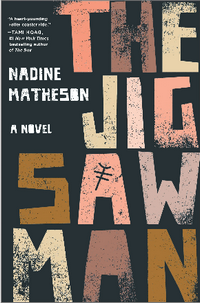 The Jigsaw Man
The Jigsaw Man
My original post
DI Anjelica Henley is your typical detective so focused on the job that everything else in their life is a tertiary concern at best, she makes horrible choices in her personal life, and seems to make enemies wherever she goes. One such enemy is a serial killer she put away some time ago, but then new bodies start showing up that look like the work of that killer. Did she put the wrong man away? Is this a copycat? Or something worse? The Jigsaw Man is a dark, unsettling read—there are two pages toward the end that may be the most disturbing pages I’ve ever read. And yet…there’s something very appealing about the novel—it’s gripping and compelling, it’s also entertaining. The pacing was perfect. The characters were well-drawn and felt fresh. It’s the kind of book that makes you ignore responsibilities–and possibly food and hygiene–or at least want to until you finish.

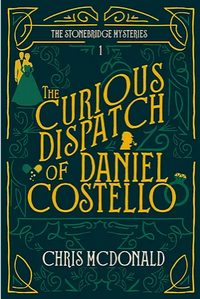 The Curious Dispatch of Daniel Costello
The Curious Dispatch of Daniel Costello
My original post
(really this spot belongs to all Series: The Stonebridge Mysteries, but we’ll use this as a synecdoche (or did I mean metonym? I’m can’t remember)). I’ve been calling this a Cozy for People Who Don’t Like Cozies. It’s about a pair of guys in their twenties, trying to figure out their lives. They’ve spent too much time watching Sherlock and the like, and when one of them discovers a dead body at a wedding they’re attending, they take it upon themselves to solve the murder. Which leads to them doing that again in a few months—and again, and again. They really don’t have any business doing this kind of thing, but it turns out that they have a knack for it. This novella (and those that follow) is a quick burst of fun—a witty whodunit with a couple of unlikely amateurs on the case.

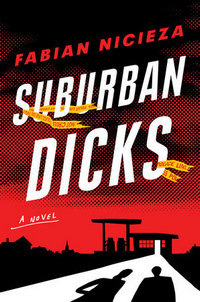 Suburban Dicks
Suburban Dicks
My original post
A disgraced journalist struggling to find some sort of professional redemption (not to mention a better paycheck) and a pregnant mother of four (who gave up her lifelong dream of being an FBI profiler to raise a family) pair up to investigate their suburb’s first murder in decades because the police department just isn’t up for it (assuming they’re not too crooked to do the job right). You get a great mix of dark comedy, social commentary, and clever mystery as the pair unearth secrets that have been buried for generations on their way to solve the murder of a gas station attendant. From the great opening scene to the fantastic last line (probably the best I read last year), and all points between, this was easily one of my top reads of the year.

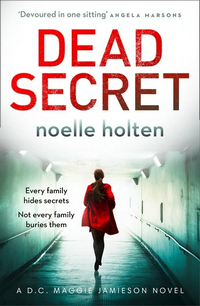 Dead Secret
Dead Secret
My original post
Like Eve Ronin (above), DC Maggie Jamieson, is driving herself to exhaustion. She’s just that driven. This book features Maggie and the rest of the team on the hunt for a killer and trying to find (hopefully in time) their missing DCI, which means no downtime for Maggie or anyone else. You’ve got a pretty grizzly beating death to start off with and then you the police’s natural inclination to focus all resources on the missing DCI. Just those two storylines would be enough. But then Holten throws in a third storyline—a person in desperate need of help, a survivor of (as far as anyone can tell) of domestic violence—a reminder that policing isn’t about arrests, it isn’t about only maintaining social order—it’s about people like this woman who showed at Lucy’s front door, it’s protecting and serving the public. This is the kind of thing that both (fictional and real) civilians and the (fictional and real) police need to be reminded of, and here it elevates the rest of the novel by its presence.

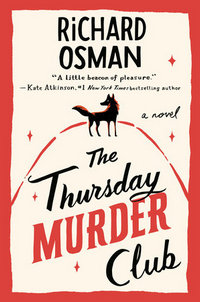 The Thursday Murder Club
The Thursday Murder Club
My original post
What can I possibly say about this that hasn’t been said before? This book is just great—it’s about a group of friends in a retirement community who spend a few hours a week looking over police cold cases (one of the group is a retired police officer, and these are her files) and then a murder happens in their community. They trade in their cold cases for this very warm one right away. I can’t think of a thing about this novel I didn’t like—it was touching, amusing, honest about the circumstances that these characters found themselves in, but life-affirming, too. There’s a lot of profundity mixed in with the amusement—and a clever mystery, to boot! This is not one to pass up.

![]()


